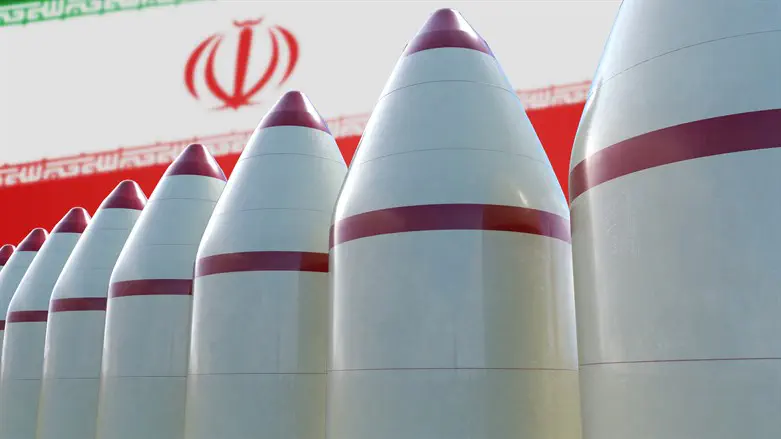
France, Germany, Britain and the United States on Thursday condemned an increase by Iran in the production rate of highly enriched uranium of up to 60% purity, close to the level used for nuclear weapons fuel, Reuters reports.
The four countries published a joint statement following a new International Atomic Energy Agency (IAEA) report which said Iran has accelerated production of highly enriched uranium after months of slowdown.
The statement made no mention of any consequences Iran could face for the production hike but called for its reversal and said the four countries remained "committed to a diplomatic solution" of the feud over Tehran's nuclear program.
"The production of high-enriched uranium by Iran has no credible civilian justification," the statement said, according to Reuters. "These decisions ... represent reckless behavior in a tense regional context."
"We condemn this action, which adds to the unabated escalation of Iran’s nuclear program," the joint statement said.
On Tuesday, the IAEA released a report saying Iran "increased its production of highly enriched uranium, reversing a previous output reduction from mid-2023."
Iran had increased its output of 60 percent enriched uranium to a rate of about nine kilograms a month since the end of November, the UN watchdog said.
That is up from about three kilograms a month since June, and a return to the nine kilograms a month it was producing during the first half of 2023.
Iran claimed on Wednesday there was "nothing new" in the IAEA report.
"We have done nothing new and our activity is according to the regulations," said Iran's top nuclear official Mohammad Eslami, adding, "We were producing the same 60 percent, we didn't change anything and we didn't create any new capacity."
An IAEA report released in mid-November found that Iran has enough uranium enriched to up to 60% purity, close to weapons-grade, for three atom bombs.
A second report released at the same time found there has been no progress on the IAEA investigation into uranium traces found at several undeclared sites in Iran.
Iran a few months ago escalated the conflict with the IAEA by withdrawing accreditation from several top UN nuclear watchdog inspectors.
A standoff between Iran and the West, over the 2015 Iran nuclear deal, continues.
Iran has scaled back its compliance with the 2015 Iran nuclear deal in response to former President Donald Trump’s withdrawal from the agreement in 2018.
An IAEA report released in mid-November found that Iran has enough uranium enriched to up to 60% purity, close to weapons-grade, for three atom bombs.
A second report released at the same time found there has been no progress on the IAEA investigation into uranium traces found at several undeclared sites in Iran.
Iran a few months ago escalated the conflict with the IAEA by withdrawing accreditation from several top UN nuclear watchdog inspectors.
A standoff between Iran and the West, over the 2015 Iran nuclear deal, continues.
Iran has scaled back its compliance with the 2015 Iran nuclear deal in response to former President Donald Trump’s withdrawal from the agreement in 2018.

